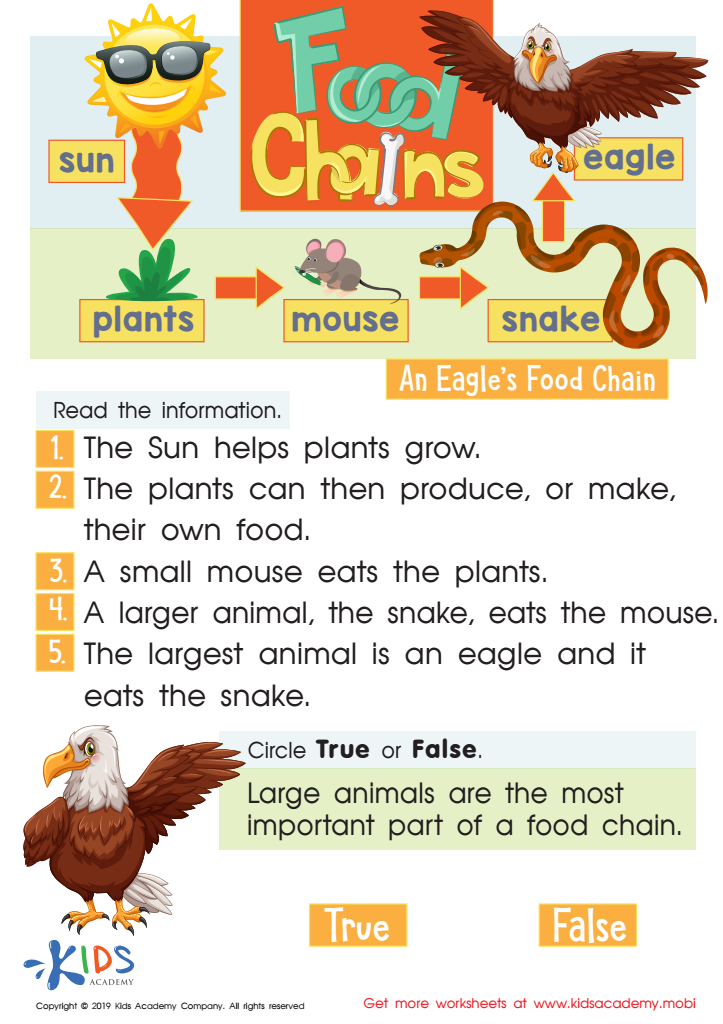Identifying animal diets Worksheets for Kids
1 filtered results
-
From - To


Food Chains Worksheet
Question/Answer
How to test a Grade 3 student’s Identifying animal diets skills?
To test a Grade 3 student's ability to identify animal diets, provide them with images or names of various animals. Ask them to categorize these animals into groups based on their diets, such as herbivores, carnivores, and omnivores. Use a mix of familiar and less common animals to assess their understanding and application of the concepts.
How to train the Identifying animal diets skill in Grade 3 students learning about Reading Non-Fiction?
To train Grade 3 students in identifying animal diets while reading non-fiction, use engaging texts about animals. Introduce vocabulary related to animal diets (herbivore, carnivore, omnivore). Implement activities such as sorting animals based on their diets, reading comprehension questions focusing on diet information, and creating simple charts that categorize animals by their diets during interactive reading sessions.
Why is the Identifying animal diets skill important for Grade 3 students?
Identifying animal diets is important for Grade 3 students because it helps them understand the diversity of life and ecosystems. By learning about herbivores, carnivores, and omnivores, students gain insights into food chains and the balance of nature. This knowledge builds foundational science skills, encourages curiosity about the natural world, and fosters an early appreciation for environmental conservation.
 Assign to the classroom
Assign to the classroom

.jpg)










